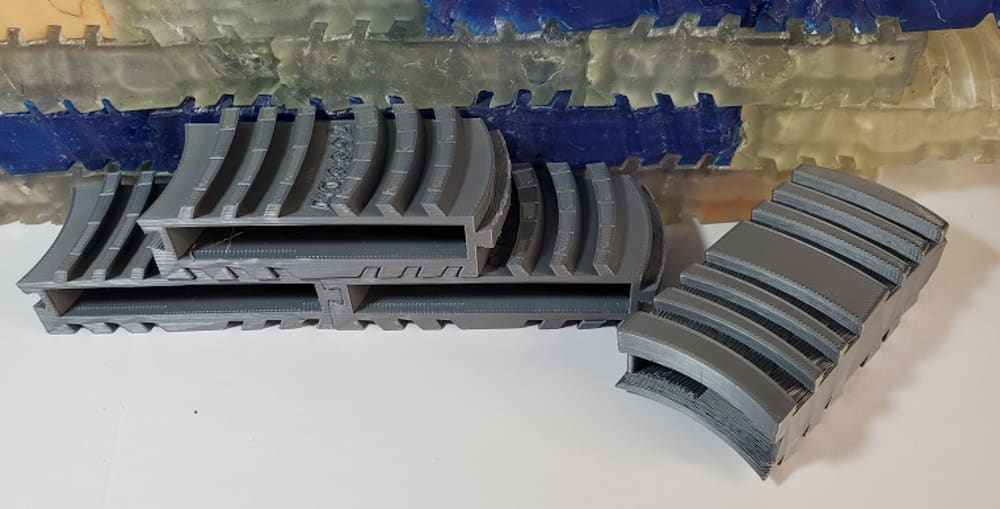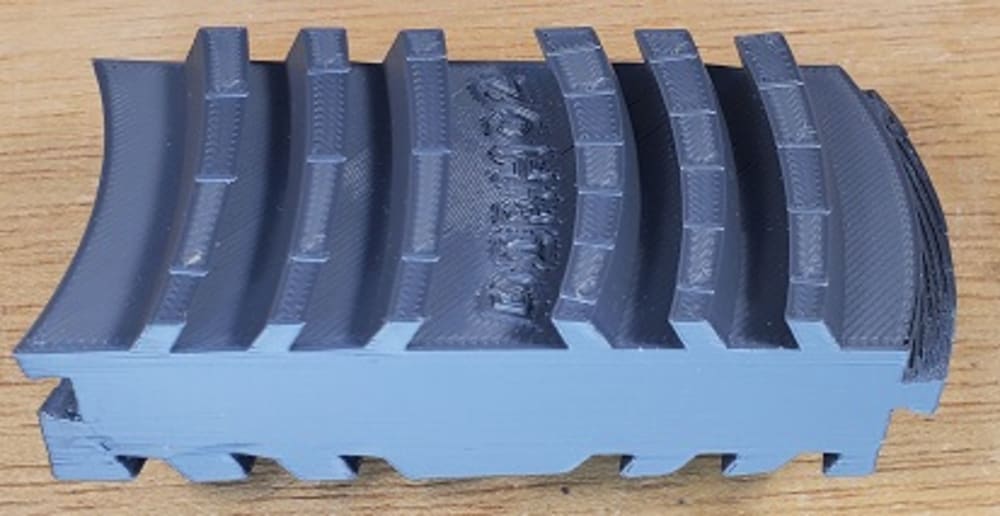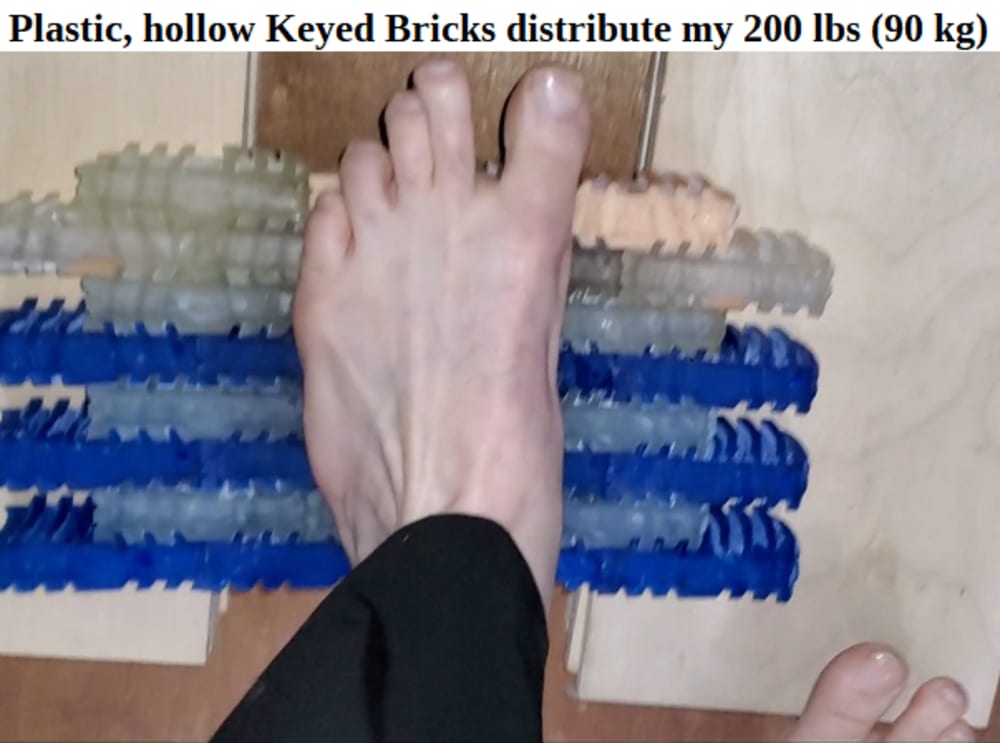
Keyed BricksTM require no fasteners, no cement or no training. Keyed Bricks are a high-tech shell filled with low-tech recycled plastic waste that increases its strength. It is engineered for a decentralized manufacturing process using local resources. Keyed Bricks can build sustainable load-bearing structures for communities anywhere in the world.
This technology addresses some major problems.
- The world produces over 300 million tons of plastic every year. More then half goes into landfills. This is raw material that can be entombed in Keyed Bricks.
- Deforestation – Keyed Bricks will be cheap and plentiful reducing the demand for lumber
- Quick connecting structures the can be built without equipment or training. They are Lego-like for adults.
- Structures will be more resistant to lateral forces such as hurricane or tornado winds; earthquakes or floods.
- It is 15% brick and 85% of what ever needs to be entombed. That can include coal ash or mining slag that are then build into road beds. Hazardous or radioactive materials assembled into deep structures such as their tunnel walls would resist movement.
Keyed Bricks have four types of fastening that engage in 50-degree rotation.
- A Key thread has expanding female lock profiles that envelop all mating male key profiles at their terminus. Their profiles have a “hook” feature.
- One or more key threads with a common axis of rotation is a Set.
- A brick can only turn on one axis. Adding other bricks bring additional Sets with their multiple axes of rotation that lock them in place.
- The shape of the brick curves add resistance to fracture planes and other mechanical stresses.
These properties give keyed threaded applications a wide range of usefulness.
- Can build straight, curved, cornered, arched and dome walls.
- There are two Keyed Brick configurations; Keyed Tubes can be large diameter assembled without equipment; Keyed Disks for distributing loads across flat panels and floors; and Keyed Beams are a variety of H, I, T and other structural beams assembled from locking truss components.
- Can be used in buildings, tunnels, large drainage/irrigation channels/tubes, road beds, embankments, structures underwater or on Mars. These are tools for others to exact their imagination on.
This is a software driven business for creating and optimizing its first basic building components that could be around for a century. Finite Element Analysis software is a computer simulated destructive testing tool used to fine tune designs. It is needed for many iterations to narrow those designs to a few physically destructively test. The goal is general purpose building components with a reasonable idea of capacity within a range of materials. So the optimizing is not a pursuit of perfection, but the best fit for different combinations of recycled plastics. A different group would be for ceramics, cements and concretes; metals another group. These groups have different structural characteristics.
This is how it is beginning. See http://www.keyedbrick.com.
Video
-
Awards
-
 2021 Top 100 Entries
2021 Top 100 Entries
Like this entry?
-
About the Entrant
- Name:Dale Van Cor
- Type of entry:individual
- Software used for this entry:Customer software to engineer and output slt parts
- Patent status:pending








